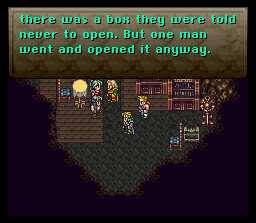Women and Demons (original) (raw)

Pandora’s Jar: Women in the Greek Myths, by Natalie Haynes – I believe I first saw this book mentioned in a list of online recommendations, but it was also discussed on the Let’s Talk About Myths, Baby! podcast. It focuses on ten women (well, a group of women in one case): Pandora, Jocasta, Helen, Medusa, the Amazons, Clytemnestra, Eurydice, Phaedra, Medea, and Penelope, many of whom are often maligned in retellings and interpretations of the myths. The title refers to how, while the phrase “Pandora’s Box” is common in English, it was originally a jar, and only became a box due to Erasmus’ Latin translation of Hesiod in the sixteenth century. While perhaps it doesn’t make that much difference to the meaning, the jars Hesiod referred to were large and fragile, not something you could hold in your hand. Pandora’s story has also gotten combined with the Biblical Eve, and while there’s definitely some misogyny in Hesiod’s story, it also seems like Pandora was more a tool of Zeus than someone who did something bad on her own. I had forgotten that Pandora had the jar with her when the gods sent her to Epimetheus, and he fully intended to punish the Titan for his and his brother Prometheus‘ role in benefiting humanity at the expense of the Olympians. I don’t think who opened the jar was that important to Zeus as long as it happened. It’s also mentioned that there are surviving positive portrayals of Pandora as the mother of humanity. I found it interesting that, in Aesop’s version of the story about the jar of evil, it’s a man who opens it, as that’s also the case with the tale Banon tells in Final Fantasy VI.
Medusa’s monstrous form was, in some interpretations (Ovid’s was the most detailed, but it was mentioned as early as Hesiod), a punishment by Athena for being raped by Poseidon, presumably because the goddess couldn’t punish him. And even in that form, she just hung around with her sisters on a faraway island, not purposely causing trouble for anyone. And Medea, while she definitely did some terrible things, she was also put into an impossible situation due to her love for the double-crossing Jason, which might not have even been voluntary. There’s obviously a lot more to it than that, but those were some of the aspects I found the most interesting. I definitely recommend it for anyone interested in mythology.

Force of Fire, by Sayantani DasGupta – This is a prequel of sorts to the Kiranmala and the Kingdom Beyond series, focusing on the Demon Queen Pinki, who here is a young rakkhosh with trouble controlling her fire breath. She makes a deal with Sesha, the attractive son of the serpent Governor General, but finds that he’s not exactly true to his word. Pinki becomes part of the resistance against the snake overlords who rule the Kingdom Beyond at this point, and brings an army of ghosts to rescue her fellow rakkhosh from an underwater fortress. Kiranmala’s mother, the Moon Maiden Chandni, plays a role, as does Tuntuni’s father, who’s just as prone to terrible jokes as his son. Ai-Ma, Pinki’s dotty and doting mother, also appears. The author intended the fight against the occupying serpents to parallel the fight for Indian independence, and there are references to their trying to erase the demons’ language, particularly their rhyming speech.

Razzmatazz, by Christopher Moore – This is the sequel to Noir, not one of my favorites among Moore’s books, but an entertaining read nonetheless. I felt much the same about this one, although the incorporation of elemental dragons is interesting. It’s set in 1947 San Francisco, and Sammy Tiffin finds himself having to help find the Rain Dragon for Eddie Shu’s Uncle Ho, and his past in China and immigration to California is discussed in flashbacks. Sammy’s girlfriend Stilton, meanwhile, finds herself playing detective to try to figure out who’s been murdering drag kings. The alien from Noir reappears as well, and has some people build him a mechanical dragon so he can get his spaceship back. There’s a little of everything, and as is typical for Moore, a combination of well-researched references and lowbrow jokes.
This entry was posted in Authors, Book Reviews, Chinese, Christopher Moore, Feminism, Final Fantasy, Focus on the Foes, Gender, Greek Mythology, History, Humor, India, Language, Magic, Monsters, Mythology, Relationships, Religion, Roman, Video Games and tagged adam and eve, aesop, athena, bible, demons, dragons, epimetheus, erasmus, final fantasy vi, force of fire, gorgons, hesiod, jason, kiranmala and the kingdom beyond, medea, medusa, natalie haynes, noir, pandora, pandora's jar, poseidon, prometheus, rakkhosh, razzmatazz, sayantani dasgupta, titans, zeus. Bookmark the permalink.